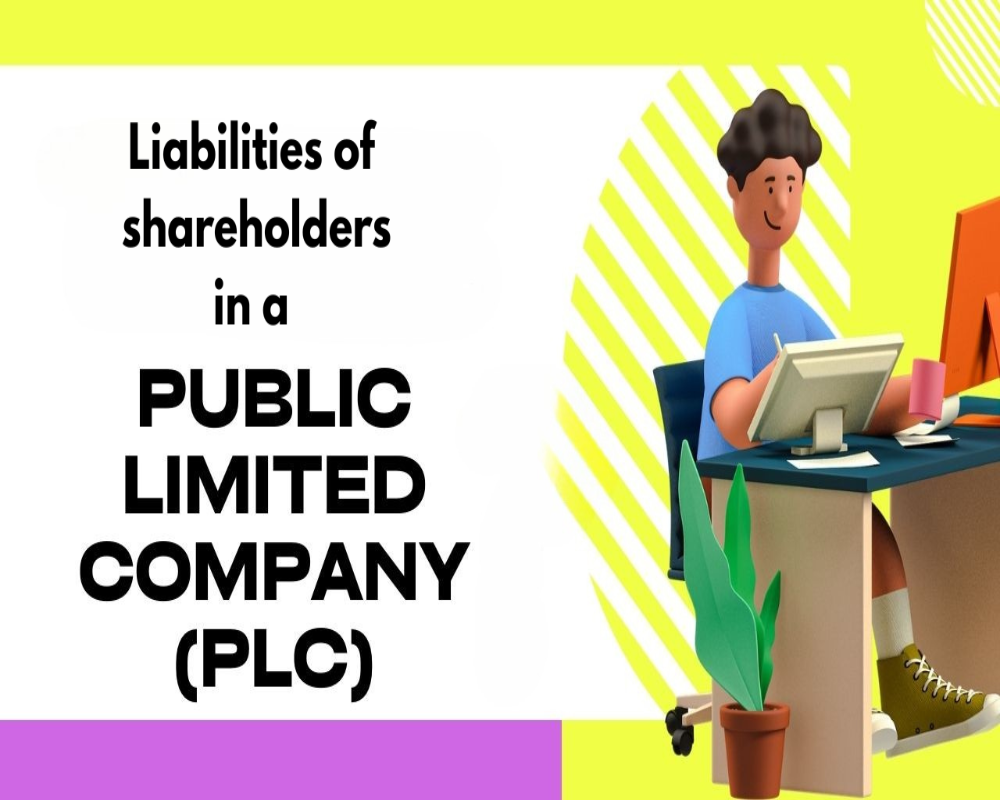Introduction
A Public Limited Company (PLC) is a corporate entity formed under the Companies Act, 2013 that allows for public participation through the purchase of shares. One of the most important features of this company structure is the concept of limited liability for shareholders. This legal protection ensures that shareholders are not personally responsible for the company’s debts beyond their investment in the company. Understanding the nature and extent of shareholder liability is crucial for anyone considering investment or ownership in a Public Limited Company.
Limited Liability Concept
The term “limited liability” means that the shareholders’ financial obligation is limited to the amount unpaid on the shares they hold. If the shares are fully paid, shareholders have no further liability, even if the company incurs debts or is liquidated. This principle provides a safety net for investors, encouraging public participation in company ownership.
Extent of Liability
In a Public Limited Company, shareholder liability arises only in the event of the company’s winding up, and even then, it is restricted to the unpaid portion of the share capital subscribed by the shareholder. For example, if a shareholder holds 1,000 shares with a face value of ₹10 each, and has paid ₹8 per share, they are liable to pay the remaining ₹2 per share, totaling ₹2,000, in the event of liquidation.
No Personal Asset Risk
Unlike in partnerships or sole proprietorships, shareholders in a Public Limited Company are not required to use personal assets to satisfy company debts. Creditors cannot go after the personal property of shareholders, and the company’s debts are discharged only through its own assets. This separation of ownership and liability is a cornerstone of modern corporate law.
Impact of Fully Paid Shares
Once the shares held by a shareholder are fully paid-up, their liability ceases entirely. They are not responsible for any debts, losses, or obligations of the company beyond the initial capital contributed. This feature makes investing in public companies more attractive and secure for retail and institutional investors.
Exceptions to Limited Liability
While shareholder liability is limited, there are rare exceptions. If a shareholder is found guilty of fraudulent conduct, misrepresentation, or wrongful trading in collusion with the company, the court may lift the corporate veil and impose personal liability. However, such instances are exceptional and require strong legal evidence.
Non-involvement in Management
Shareholders who do not hold directorship or management roles are not involved in the day-to-day functioning or decision-making of the company. Their role is primarily as investors, and their liability remains restricted regardless of the company’s operational or financial performance.
Liability in Shareholder Agreements
Sometimes, shareholder agreements or investment contracts may impose specific obligations or penalties on shareholders, especially in private placements or joint ventures. However, these are contractual obligations and not statutory liabilities, and they do not affect the basic limited liability principle under the Companies Act.
Role in Company Liquidation
In the event of company liquidation, shareholders are required to contribute only up to the unpaid amount on their shares. They have no additional liability for pending loans, statutory dues, or employee payments. Once the liquidation process ends, their relationship with the company is legally terminated.
Conclusion
The liability of shareholders in a Public Limited Company is strictly limited to the unpaid portion of their subscribed shares, offering significant protection and encouraging public investment. This limited liability structure makes Public Limited Companies a preferred choice for large-scale business operations. By clearly defining the boundaries of financial responsibility, the law ensures fairness, investor security, and widespread participation in corporate ownership.
Hashtags
#ShareholderLiabilities #PublicLimitedCompany #CompanyLaw #CorporateGovernance #LimitedLiability #BusinessStructure #Investing101 #FinancialLiteracy #CorporateResponsibility #LegalObligations #ShareholderRights #BusinessEducation #FinanceTips #InvestmentKnowledge #CompanyOwnership #RiskManagement #EquityInvesting #StockMarketBasics #Entrepreneurship #BusinessLaw


0 Comments